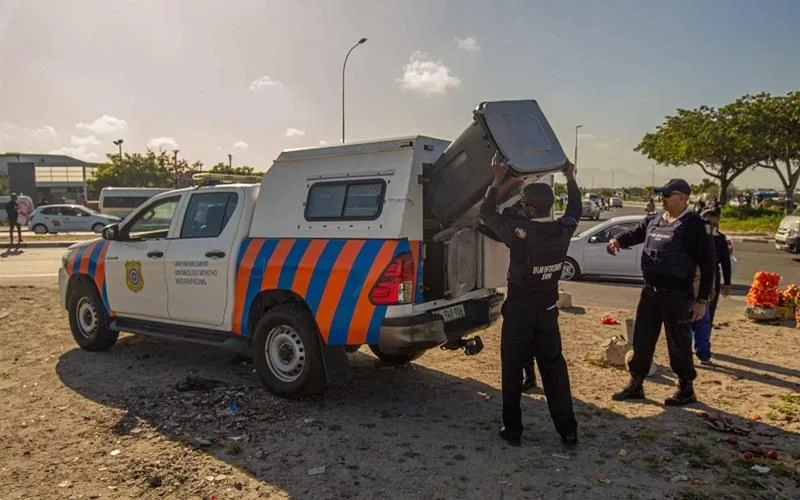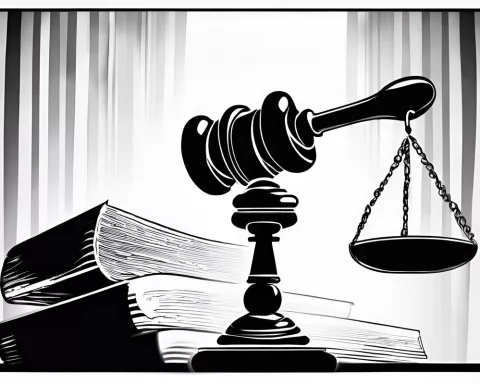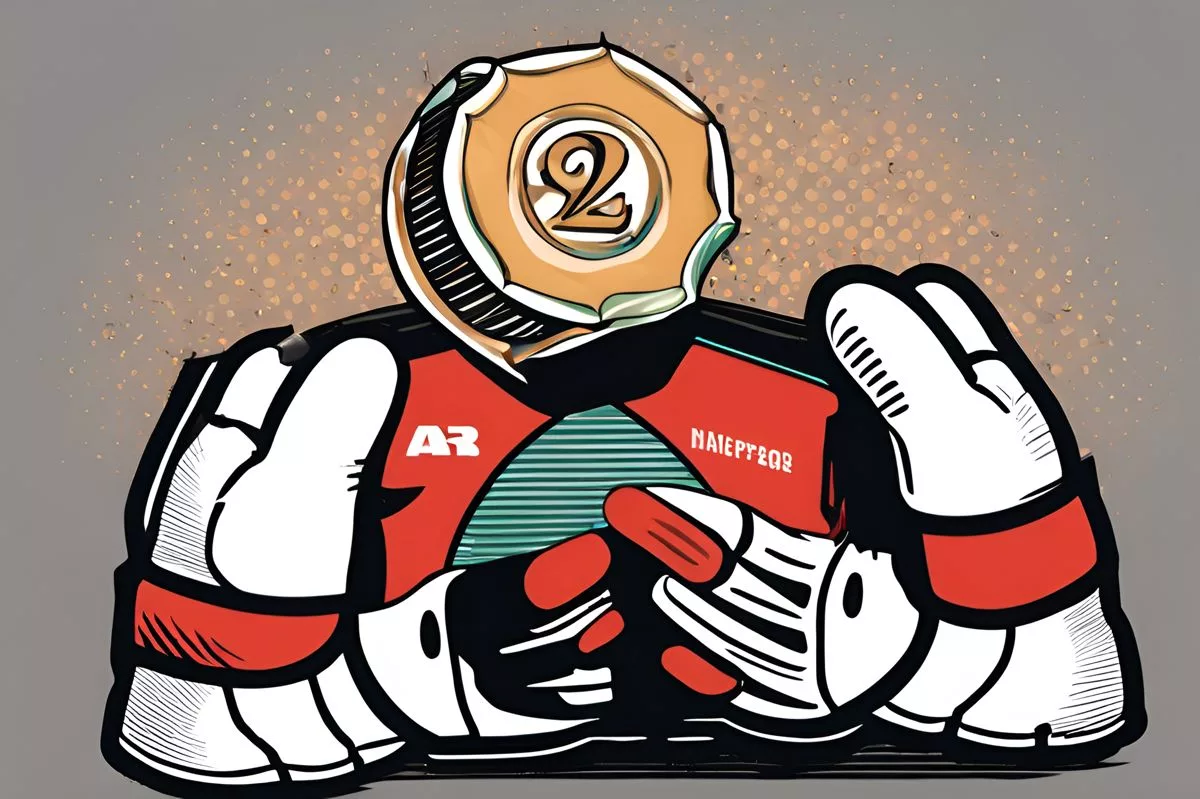Cape Town’s Urban Waste Management by-law enforcement division is dedicated to ensuring cleanliness and implementing waste management rules. From October to December 2023, the team issued 980 fines totaling R1,257,000 for littering, unlawful dumping, and non-compliance with waste management schemes. Businesses failing to comply with the Integrated Waste Management By-law, which mandates waste reduction and pollution prevention, were a significant issue addressed by the team. The team’s efforts and regulations have strengthened Cape Town’s approach to sustainable waste management.
What is Cape Town’s Urban Waste Management By-law Enforcement and how effective is it?
Cape Town’s Urban Waste Management by-law enforcement division is dedicated to upholding cleanliness and implementing waste management rules and regulations. From October to December 2023, the team distributed 980 fines totaling R1,257,000 for violations including littering, unlawful dumping, and a lack of adherence to comprehensive waste management schemes. Businesses failing to comply with the Integrated Waste Management By-law are a significant issue addressed by the team, which mandates an IWM plan for waste reduction and pollution prevention. The team’s efforts and regulations have fortified Cape Town’s approach to sustainable waste management.
Nestled amidst mountains and oceans, Cape Town is a bustling city with a silent battalion of by-law enforcers bent on preserving its pristine beauty. In 2023’s last quarter, the Urban Waste Management by-law enforcement division of Cape Town made significant headway in their unwavering mission to uphold city cleanliness and implement waste management rules and regulations.
The Triumph of Regulatory Efforts
From October through December 2023, the team’s determination resulted in the distribution of 980 fines, amounting to a substantial R1,257,000. These fines were imposed for a diverse range of violations, including littering, unlawful dumping, and a lack of adherence by businesses to comprehensive waste management schemes. This enforcement crusade spanned the entire city, reaching from the bustling Mitchells Plain Town Centre and the busy Westlake Taxi Rank to the heart of the Cape Town and Bellville CBDs.
Alderman Grant Twigg, the Mayoral Committee Member for Urban Waste Management, highly praised the team’s dedication to cleanliness. He expressed his respect for the unit’s commitment, reflected in the increasing number of fines for waste management infringements. Twigg optimistically suggested that the substantial fines might serve as a deterrent for lawbreakers, curbing future waste disposal violations.
Integrated Waste Management By-law: A Necessity for Businesses
A crucial issue addressed by this team pertained to businesses failing to adhere to the City’s Integrated Waste Management (IWM) By-law. Under this legislation, businesses are compelled to present an IWM plan for the City’s endorsement. This comprehensive scheme mandates an evaluation of the type and quantity of waste, along with strategic planning for waste storage, collection, transportation, and disposal.
Furthermore, businesses have to adopt a proactive stance towards waste reduction and pollution prevention. This includes developing a robust plan for segregating recyclable and non-recyclable materials at the source, and also strategising to reduce organic waste directed to landfills by 100% by 2027.
The IWM Plan: A Detailed Analysis
The IWM scheme also stipulates an examination of the potential environmental impact of generated waste, the type of environmentally-sensitive waste, and the quantity of natural resources used in the production process. Additionally, it mandates the inclusion of recovery targets for waste reduction, re-use, recycling, and programmes to cut down on natural resource consumption.
Alderman Twigg underscored the importance of businesses complying with this mandate, stressing its potential to promote sustainable waste management and align businesses with best practices. Implementing these waste management plans provides the City with a means to guide businesses on changing regulatory requirements in the waste sector. Moreover, it furnishes the City with essential insights for informed decision-making concerning waste infrastructure planning.
Cape Town: The Beacon of Waste Management Strategies
The unwavering efforts of the Urban Waste Management by-law enforcement unit, coupled with strict waste management regulations, have fortified Cape Town’s approach to waste management. As this tale continues to evolve, it becomes evident that the City of Cape Town is unyielding in its dedication to cleanliness and sustainable waste management, paving the way for a cleaner, greener future for all its inhabitants.
What types of violations were fined by Cape Town’s Urban Waste Management by-law enforcement division?
From October to December 2023, the Urban Waste Management by-law enforcement division of Cape Town distributed 980 fines totaling R1,257,000. These fines were imposed for various violations such as littering, unlawful dumping, and non-compliance with waste management schemes.
Where did the enforcement crusade take place?
The enforcement crusade conducted by Cape Town’s Urban Waste Management by-law enforcement division spanned the entire city, from the bustling Mitchells Plain Town Centre and the busy Westlake Taxi Rank to the heart of the Cape Town and Bellville CBDs.
What is the Integrated Waste Management By-law and why is it important for businesses to comply?
The Integrated Waste Management (IWM) By-law mandates an IWM plan for waste reduction and pollution prevention, which businesses are required to adopt. This comprehensive scheme includes strategic planning for waste storage, collection, transportation, and disposal, as well as a proactive stance towards waste reduction and pollution prevention.
What does the IWM plan entail?
The IWM plan involves evaluating the type and quantity of waste, developing a robust plan for segregating recyclable and non-recyclable materials, reducing organic waste sent to landfills by 100% by 2027, and examining the potential environmental impact of generated waste. Additionally, it mandates recovery targets for waste reduction, re-use, recycling, and programmes to cut down on natural resource consumption.
Why is it important for businesses to comply with the IWM By-law?
Complying with the IWM By-law promotes sustainable waste management and aligns businesses with best practices. Implementing these waste management plans provides the City with a means to guide businesses on changing regulatory requirements in the waste sector and furnishes the City with essential insights for informed decision-making concerning waste infrastructure planning.
How have the efforts of Cape Town’s Urban Waste Management by-law enforcement division and waste management regulations fortified Cape Town’s approach to waste management?
The unwavering efforts of the Urban Waste Management by-law enforcement unit, coupled with strict waste management regulations, have fortified Cape Town’s approach to waste management. This has paved the way for a cleaner, greener future for all its inhabitants, as the City of Cape Town is unyielding in its dedication to cleanliness and sustainable waste management.












